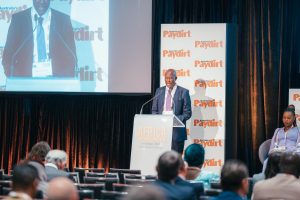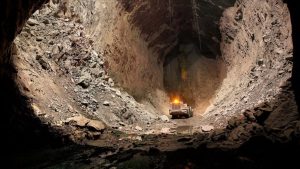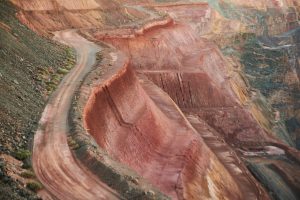Speaking on the morning of day two of the African Down Under conference in Perth, Special Adviser to the Republic of South African Minister for Minerals Resources and Energy, Mr Gwebinkundla Felix Qonde said while mining remains a strong pillar to the South African economy, he acknowledged the Fraser Institute survey has not favourably ranked the country due to constraints in electricity, rail and port systems.
As a result, the Department of Mineral Resources and Energy has begun working closely with stakeholders to resolve these factors and reduce them impeding the growth across the sector. Mr Qonde expressed his confidence in South Africa’s ranking improving if these constraints are resolved.
The South African Government has introduced a new cadastre system, which will be rolled out by the end of 2023, to assist in assuring resilience and licence processing in the sector.
Mr Qonde explained the importance to the Government of clearly defining what critical minerals means, as it has become a prominent conversation that the term means various things to various stakeholders and jurisdictions.
“The reality is, our priorities differ. The challenges we face as Africans are distinct; energy supply, food security, poverty, unemployment, and a lack of industrialisation.
“These are the narratives that dominate our landscape. And so, the narrative of critical minerals must evolve to address our unique context.”
As a result of this, the Government has committed to a holistic approach to defining critical minerals, ensuring the national and continental needs as well as global trends are considered.
Mr Qonde highlighted the wealth of resources waiting for exploration, with the country having an abundant of reserves of coal, gold, diamonds, iron ore and manganese. He encouraged a shift in focus to reinvigorate exploration efforts within the country.
To assist in reducing the risk in exploration, the Government has invested largely into the Council for Geoscience to assist in improving their work in de-risking exploration and supplying valuable geological information to investors and explorers.
In order to further attract foreign investment, the Government initially increased the threshold for embedded energy generation in 2021, from one megawatt to 100 megawatts, before removing the cap entirely in 2022.
As part of the country’s plan to ensure security in energy supply, the Government announced procurement of 10,000 megawatts of renewable energy, 3,000 megawatts of gas to power, 2,500 megawatts of nuclear energy and 1,230 megawatts of battery storage.
Mr Qonde explained the mining sector significantly contributes to the country’s gross domestic production, with it valued at $1.18 trillion in 2022 and creating more than 23,500 jobs between 2021 and 2022. The country’s mining sector now employs 472,088 workers.
“According to South African reserve revenue services back home, the mining sector contributed $89 billion in corporate tax in the 2021-22 financial year.
“A further contribution of mining of country’s revenue through royalties stood at $28.45 billion in the same period, keeping its percentage contribution to the GDP at 7.53%.
“We are working very hard to ensure that all obstacles are addressed and resolved quite speedily. We invite every one of you to take this opportunity to invest in our mining sector, because returns are hugely guaranteed.”

Special Adviser to the Republic of South African Minister for Minerals Resources and Energy, Mr Gwebinkundla Felix Qonde



